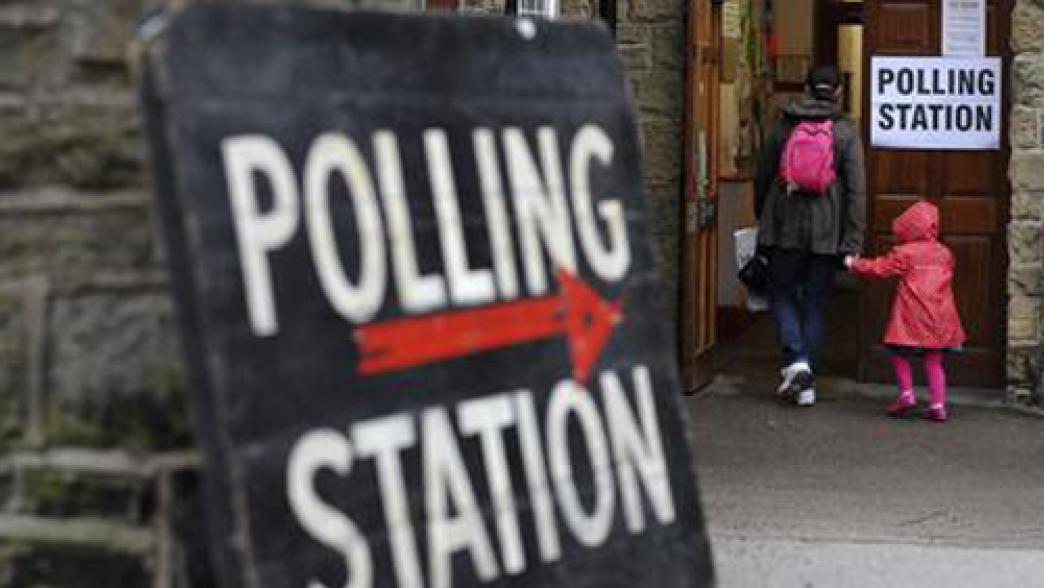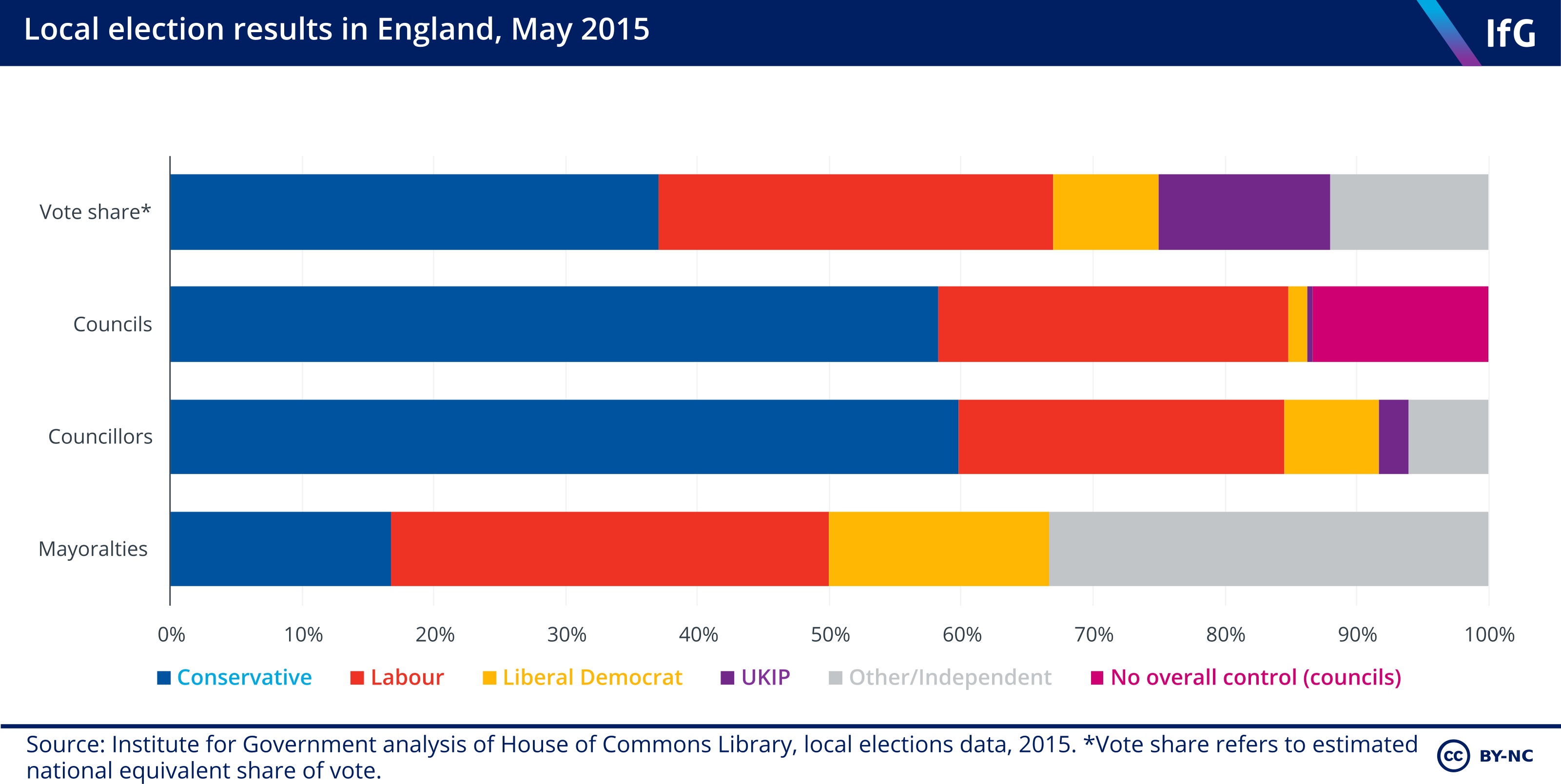
Which council elections are happening on 2 May?
Elections are taking place in 248 of 343 local authorities in England and all 11 councils in Northern Ireland. There won’t be elections in Scotland, Wales, London, Birmingham or for England’s county councils.
In England, councillors are elected using the first past the post electoral system. They will contest seats in single- or multi-member wards across three types of local authority. These are:
- 47 unitary authorities – which provide all local services in their area, and include Cheshire, Dorset, and Bath and North East Somerset
- 33 metropolitan districts – which cover parts of larger urban areas and provide all local services except certain conurbation-wide services such as transport. They include all 10 districts of Greater Manchester, as well as Leeds, Bradford, and Liverpool
- 168 district councils – which provide some local services in areas where there is also a county council. They include West Suffolk, Lancaster, and the New Forest.
Most of these authorities will be elected as a whole, meaning that every seat will be contested. However, nearly 40% of local authorities in England – including all metropolitan districts – are elected by thirds. This means that only one-third of their seats are up for election this year.
In Northern Ireland, all councils will be elected as a whole. Councillors will be chosen via single transferable vote, a proportional voting system which allows voters to rank candidates in order of preference.
What mayoral elections are taking place?
There will be six mayoral elections in England. Five of these elections will decide the executive mayors of local authorities in Bedford, Copeland, Leicester, Mansfield, and Middlesbrough. Executive mayors are council leaders who work with a cabinet of councillors to manage services provided by the local authority. They will be elected via supplementary vote (SV), which allows voters to choose their first- and second-preference candidates.
There is also an election for the new post of metro mayor for the North of Tyne combined authority, which was established in 2018. Combined authorities can be created when two or more local authorities decide to pool responsibilities and are part of a broader government programme for English devolution.
The North of Tyne metro mayor will be the eighth metro mayo post created since 2017. Metro mayors lead a cabinet of representatives from each local authority to set strategy for area-wide services like transport.
The mayor for the North of Tyne will have access to a £600 million investment fund, equivalent to £20 million per year over 30 years. They will also be responsible for projects boosting skills, housing, and business.
What are the contentious issues this year?
We have identified five key points that English voters should be aware of when they go to the polls:
- Councils are likely to face further cuts in financial support from central government.
- Services will increasingly be paid for by local taxes – meaning that council tax bills may rise in many places.
- Councillors face difficult choices about what to prioritise – and should be up front about this.
- Councils increasingly rely on volunteers to deliver services such as libraries.
- Councillors may ask local residents to pay more for services such as planning applications.
Which parties are standing in England?
The local elections in England will be dominated by the main Westminster parties. According to recent analysis, the Conservatives are standing in 96% of council seats, Labour in 77%, and the Liberal Democrats in only 53%. Labour and the Conservatives will also be contesting all of the mayoral elections.
UKIP are contesting only 16% of council seats and mayoralties in Bedford and the North of Tyne. The Greens will be standing in 30% of seats and for mayoralties in Bedford and Leicester.
The two new Brexit-focused parties, Change UK and the Brexit Party, are not officially standing. However, large numbers of independents are contesting council seats in Stoke-on-Trent, Mansfield, and Greater Manchester and vying for mayoralties including Middlesbrough and the North of Tyne.
What happened the last time these elections were held in England?
Elections to these authorities – with the exception of the North of Tyne – were last held in May 2015, coinciding with the general election. Turnout was 64.6%, in line with that of the general election and nearly double the turnout in local elections in 2014 and 2016. With no other election being held this year, turnout is likely to fall back to around 30%.
In terms of council seats, the Conservatives won 5,528 (59% of all seats contested), Labour 2,280 (24.5%) and the Liberal Democrats 658 (7.1%) in May 2015. The elections also marked a high point for UKIP, who won 206 seats (2.2%). The Conservatives won or retained control of 163 councils (58% of all councils holding elections), while Labour won 74 (26.5%) and the Liberal Democrats four (1.4%). Thirty-seven councils (13.3%) were left with no overall control.
The mayoralties offered a different picture. Labour took two mayoralties and the Liberal Democrats one. Independent candidates narrowly defeated Labour to win the mayoralties in Mansfield and Copeland.
Direct comparisons between results in 2019 and 2015 will be made more complicated by boundary changes that have been introduced in many areas.

What is the state of local government in Northern Ireland?
Elections to councils in Northern Ireland were last held in May 2014, with the councils starting operation in April 2015. This implementation period was due to council boundaries being newly-established.
In 2014, the Democratic Unionist Party (DUP) won the largest number of seats – 130 (28.1%) – on 23.1% of first-preference votes, while Sinn Féin won 105 (22.7%) seats on 24% of first-preference votes.
However, because of the proportional electoral system used, no party has enough seats to command an outright majority on any of Northern Ireland’s councils. Ten councils are currently controlled by nationalist or unionist coalitions. The exception is Belfast, which is closely split between the DUP, Sinn Féin, Alliance, and a range of independent councillors.
- Topic
- Public services Devolution